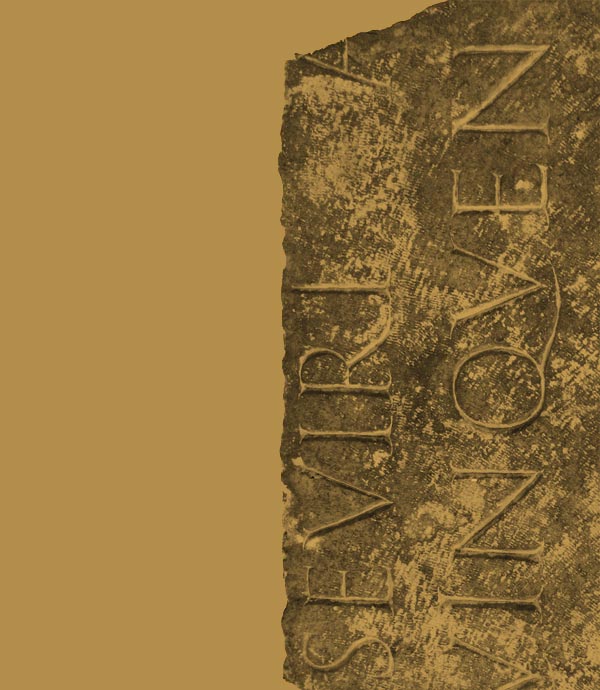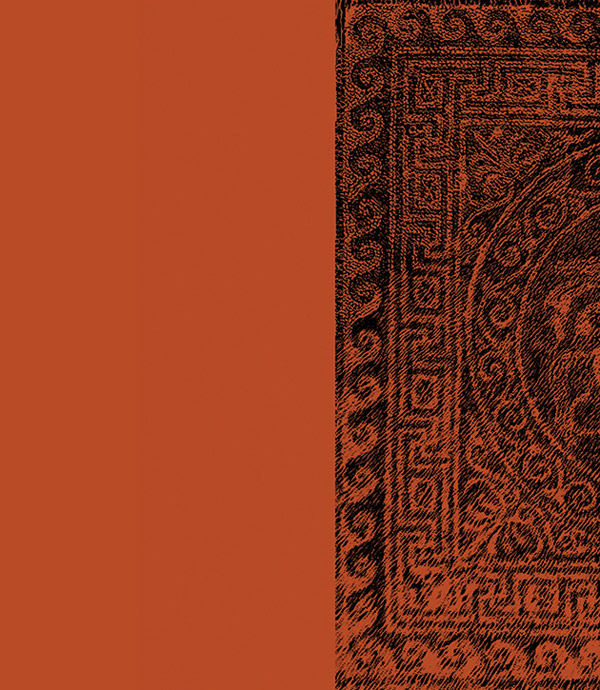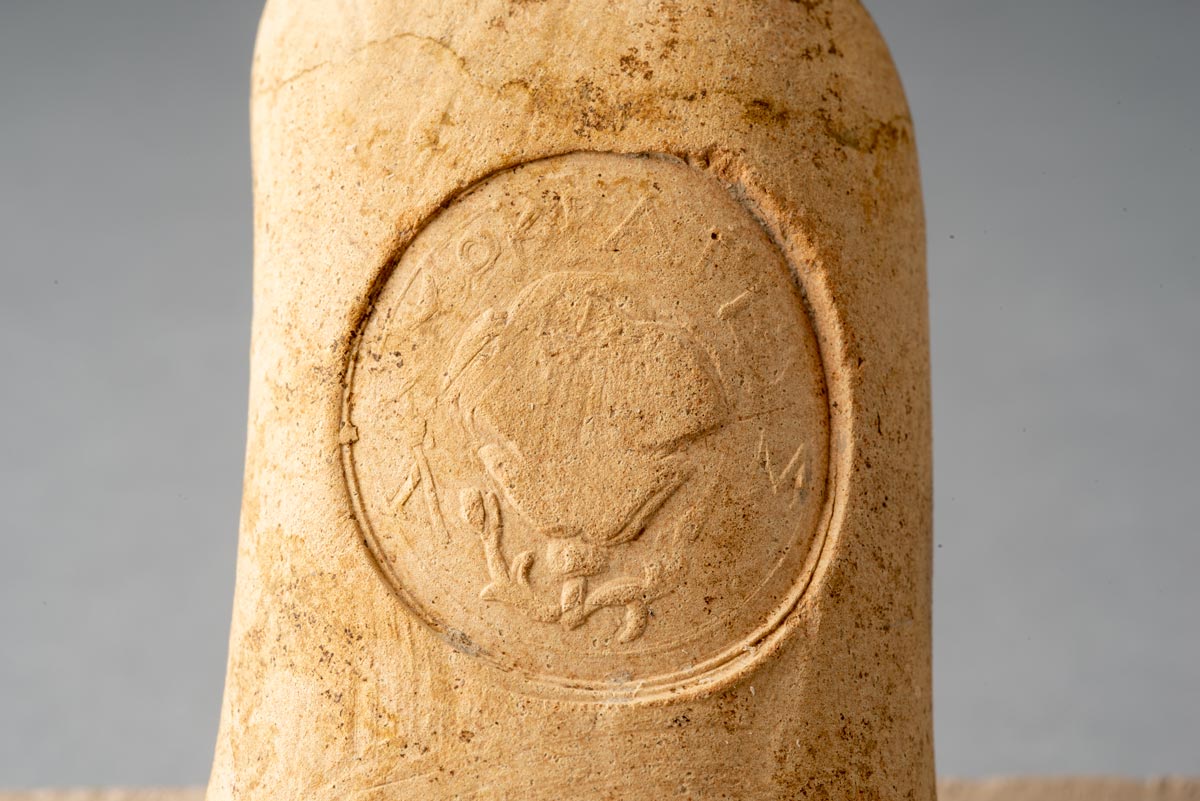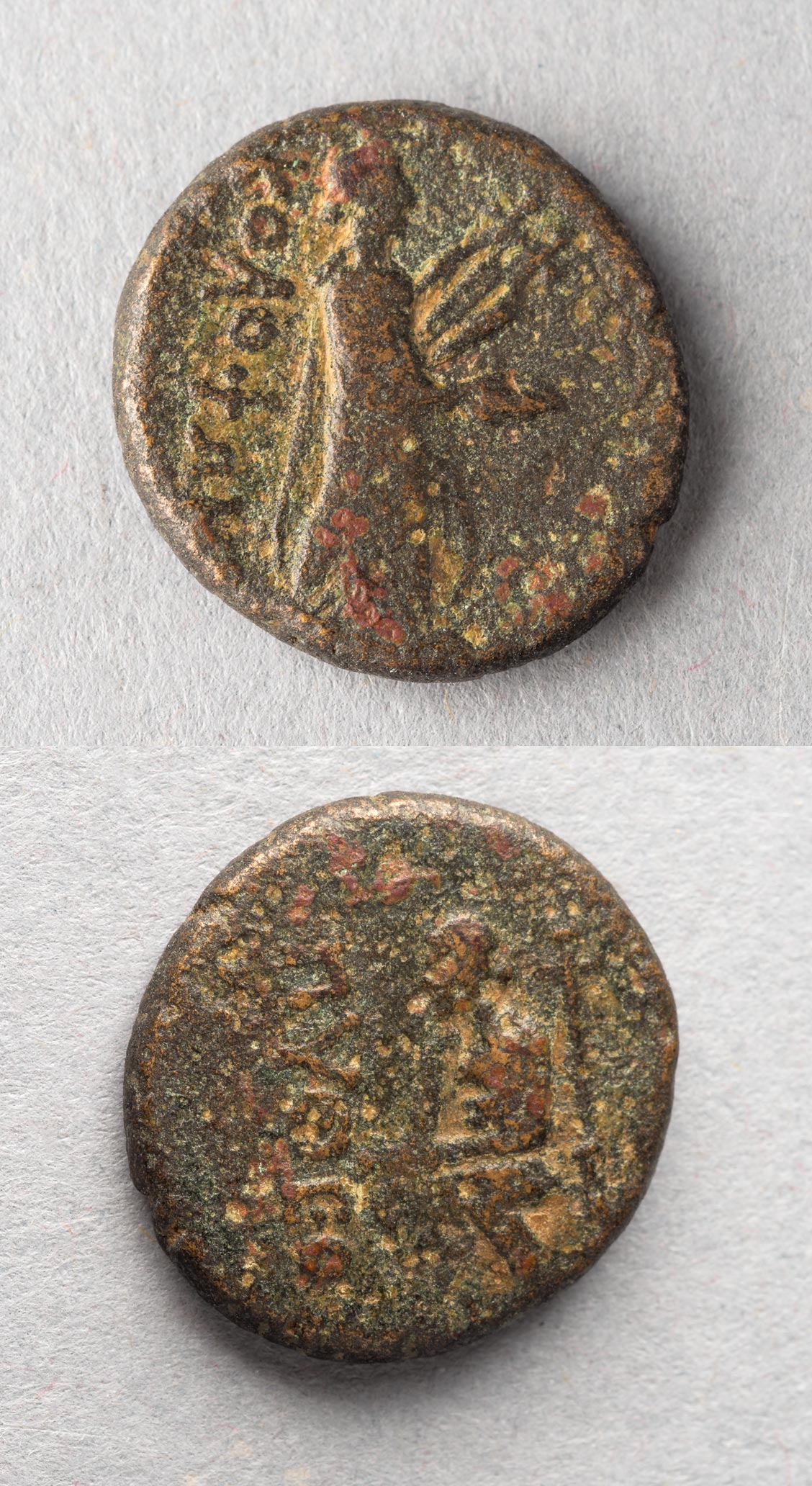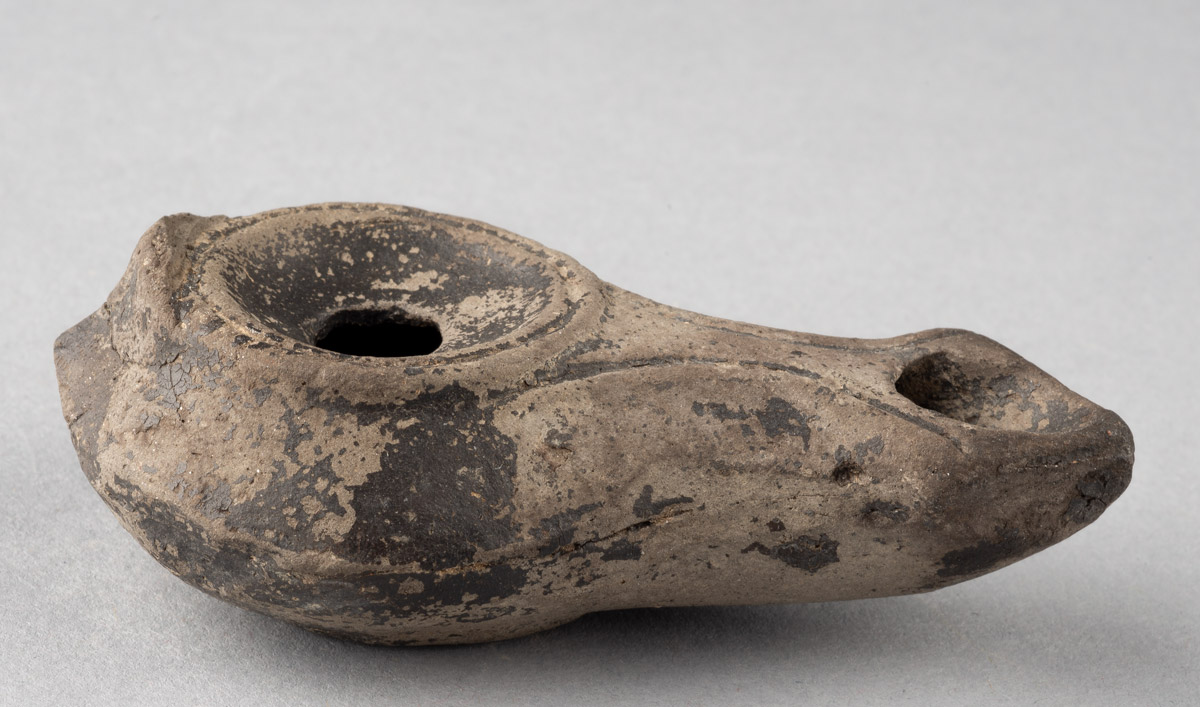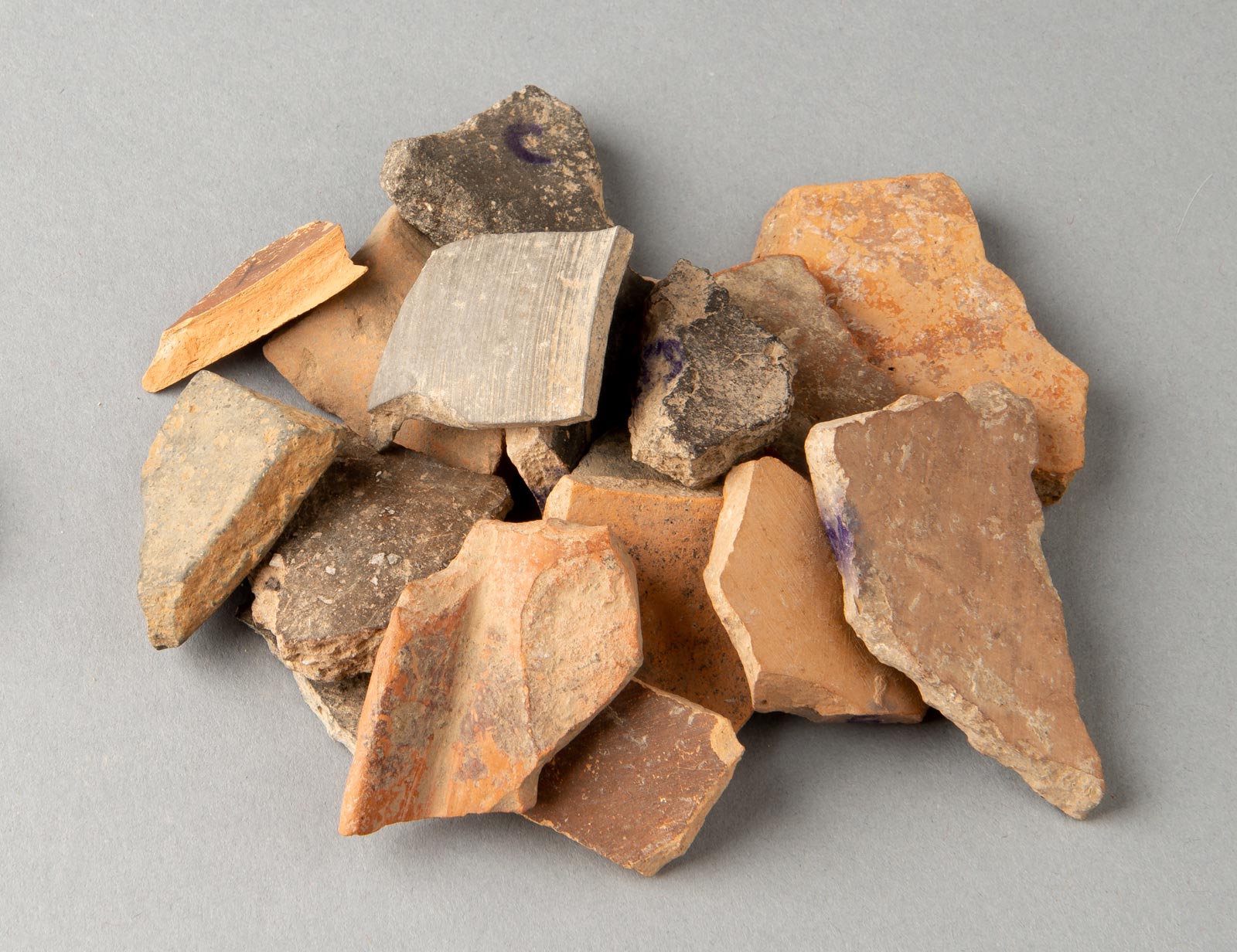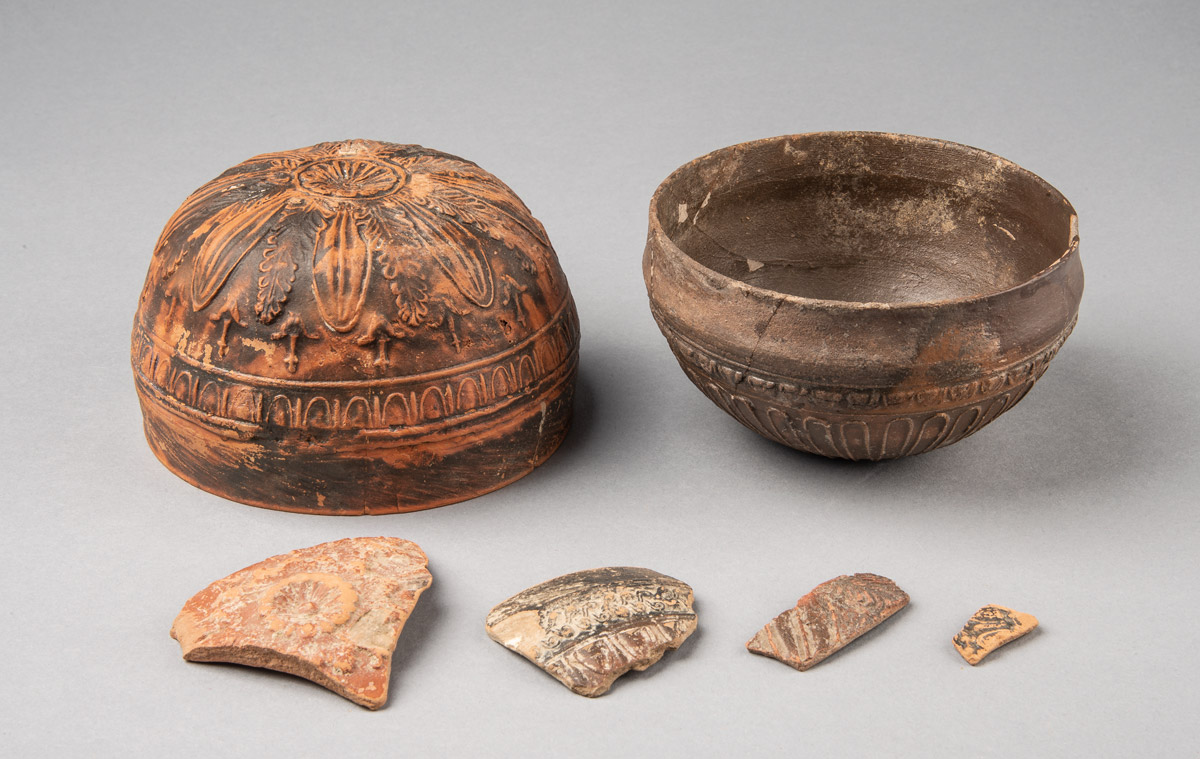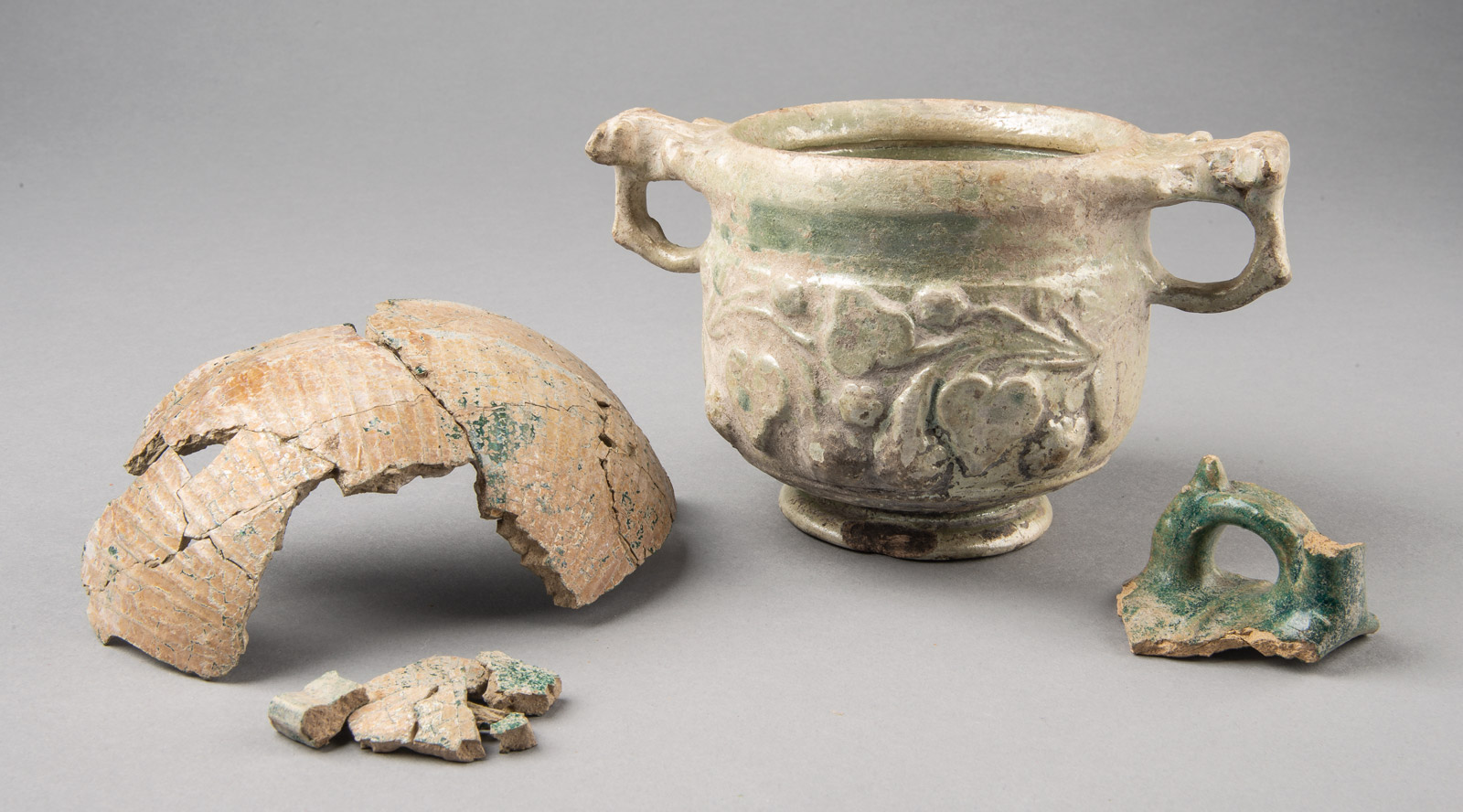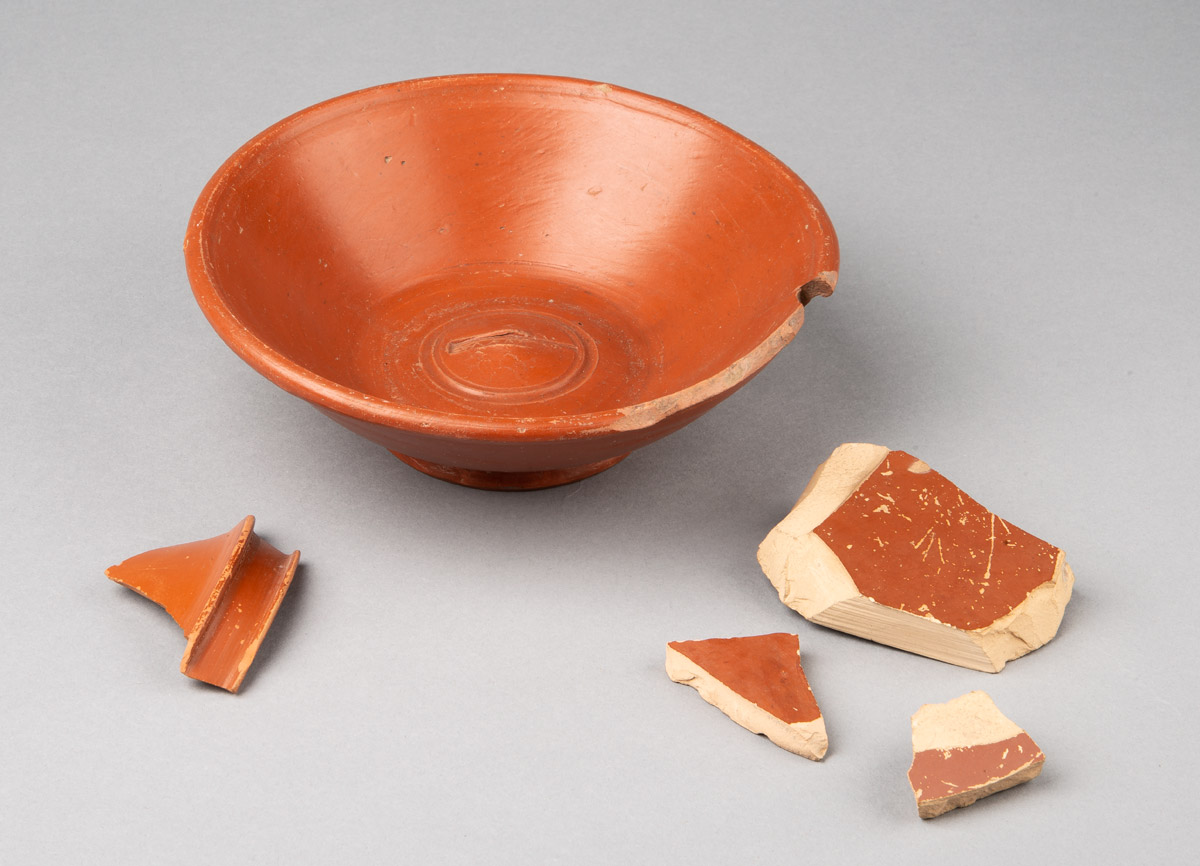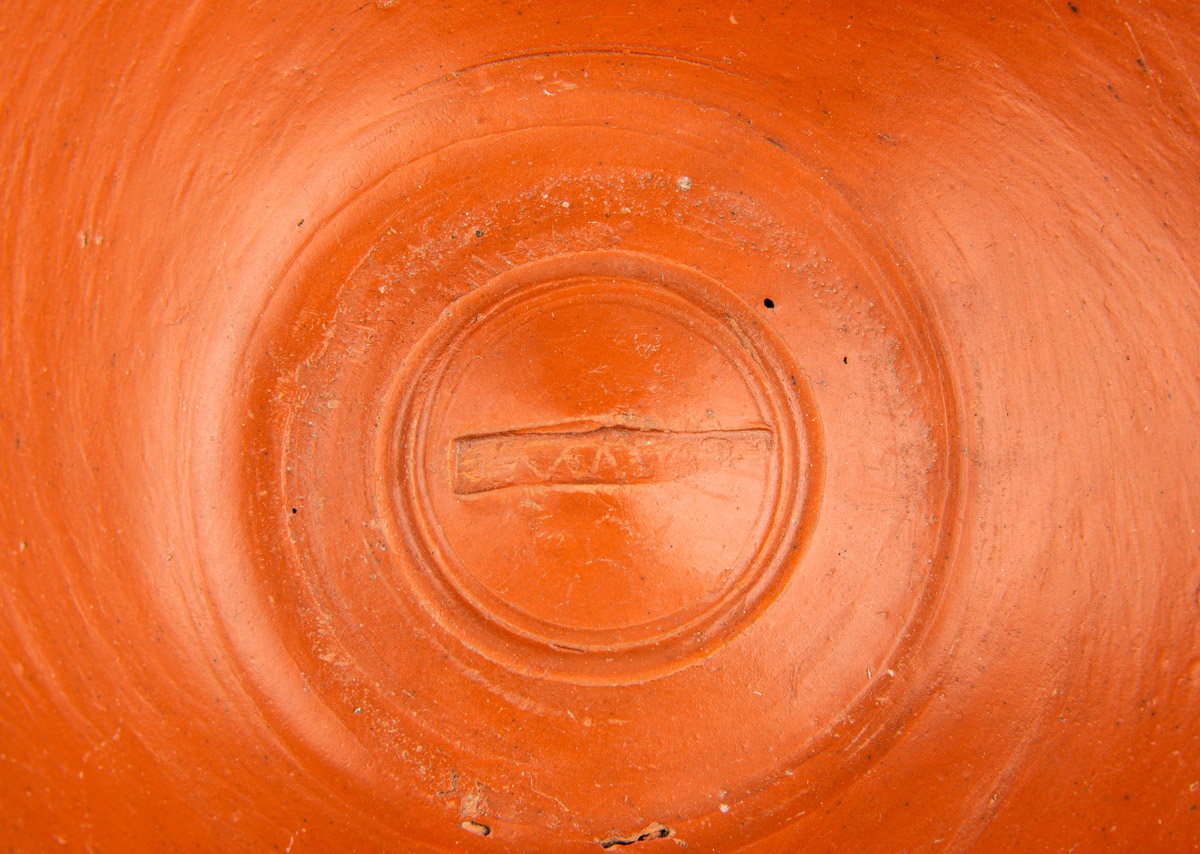Artifacts
The dates for the main period of occupation at Notion, from the 3rd century BC through the 1st century AD, are based on pottery. Because fieldwork at Notion has been limited to survey, all the pottery finds are fragmentary. Whole or broken but restorable pots are found only in graves or in unusual deposits such as the destruction level at Olynthos.
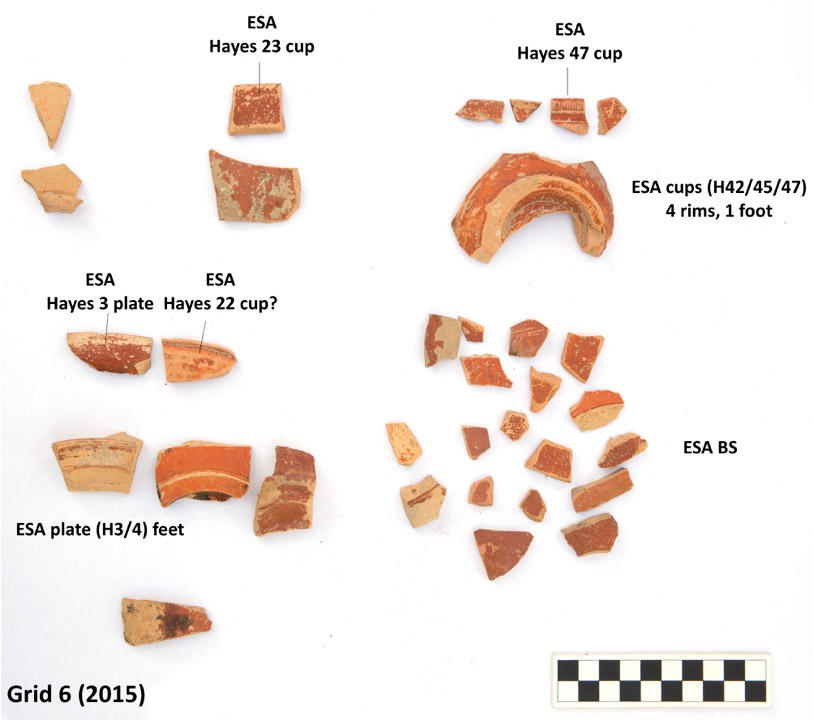
In addition to dating evidence, pottery also provides valuable information about local society. Most of the pottery from Notion is similar to that of nearby communities and so was probably made locally. Other vessels, however, were clearly imported, such as wine jars from the Greek island of Rhodes, giving us valuable glimpses of the international connections and cosmopolitan tastes of the inhabitants of this ancient town.
Kelsey Museum Artifacts
Shown here are examples from the Kelsey collections of the kinds of pottery and other artifacts found at Notion.
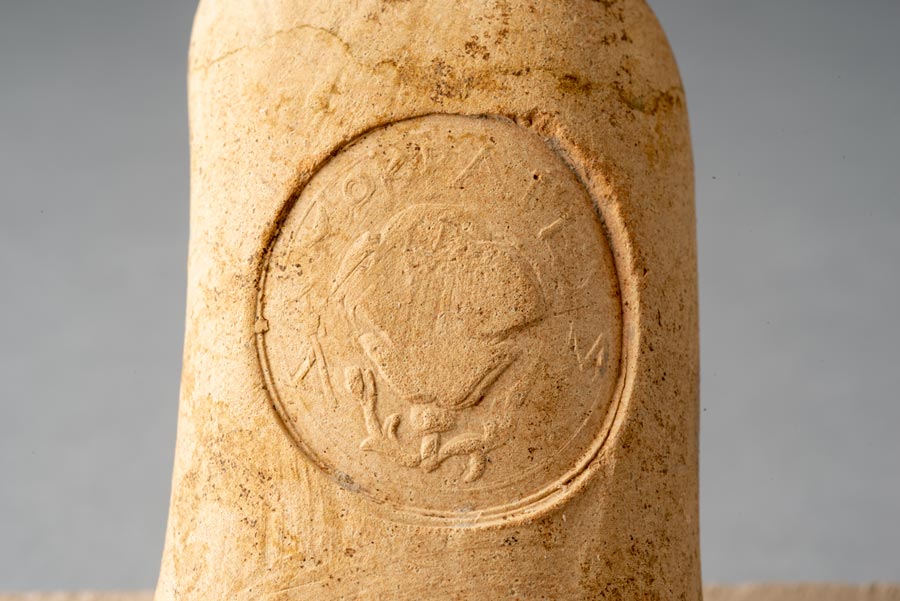
This handle is stamped with a rose, the symbol of the city.
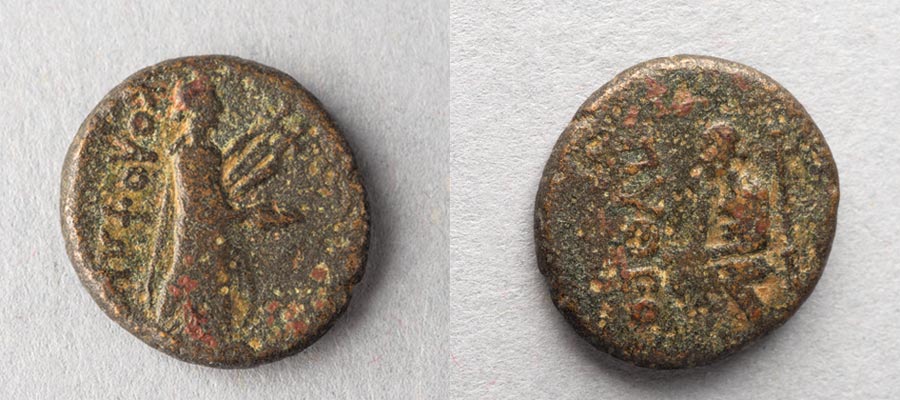
Colophon was an inland city 10 miles north of Notion. By the time this coin was minted, the population of Colophon had moved to Notion, also known as Colophon by the sea. Colophon was one of a number of cities in Ionia (western Turkey) that claimed to be the birthplace of Homer. The reverse (tails) side of this coin shows Homer, seated on a chair, with his chin in his hand.
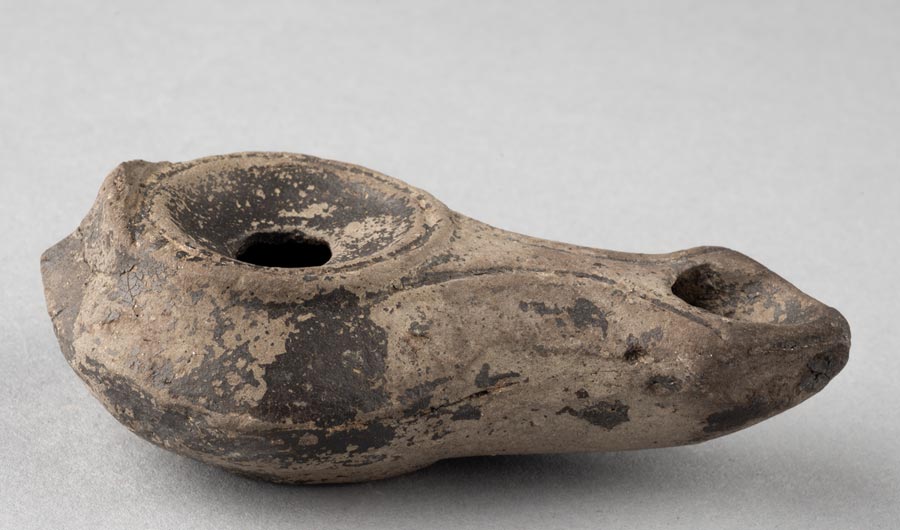
Oil lamps of this distinctive gray fabric were produced in great numbers and widely exported from Ephesus, 10 miles southeast of Notion, in the 2nd and 1st centuries BC. A fragment of a mold for making lamps of this type was found at Notion, showing that Notion was also a local production center.
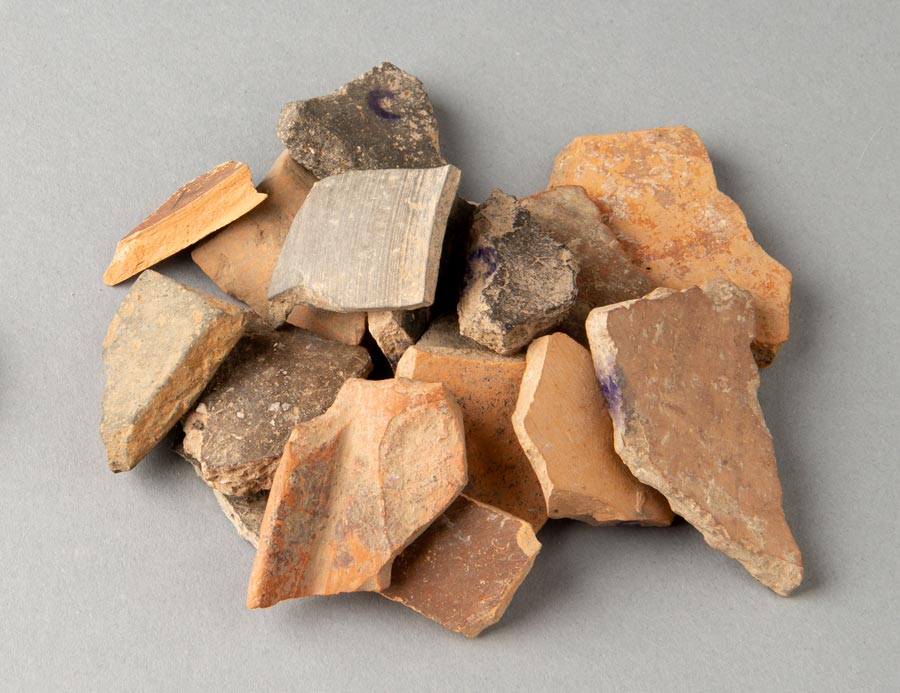
Most pottery found on archaeological sites is not closely datable. This is especially true of undecorated pottery, and of sherds or fragments from the wall of a vessel, as opposed to the rim, handle, or base. Only about 15% of the pottery collected at Notion is datable.
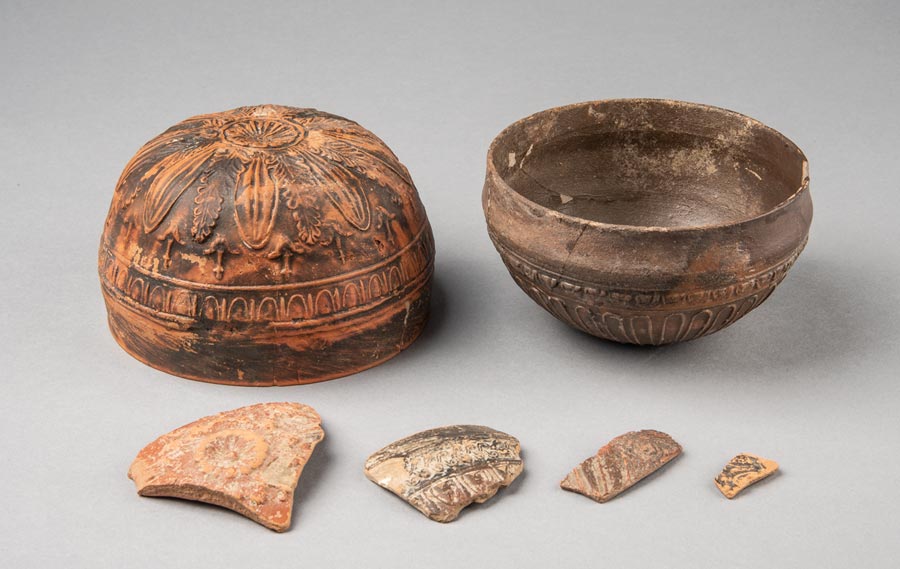
This common type of bowl was invented in the late 3rd century BC in imitation of more expensive metal vessels. Vessels of this type were thrown in molds on potter’s wheels and mainly used as drinking cups.
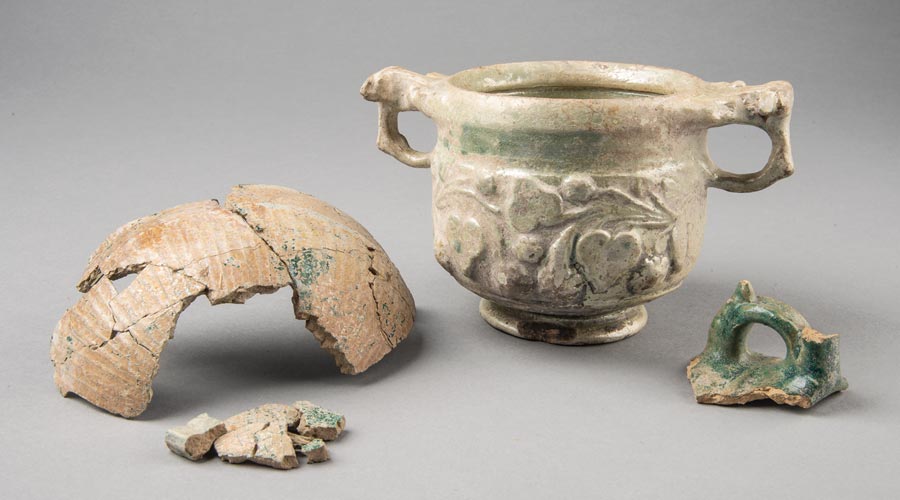
Vessels of this type are rare examples of ancient Greek and Roman pottery decorated with lead-based glaze. Like the mold-made bowls, they were thrown in molds on potter’s wheels, and used as drinking cups.

